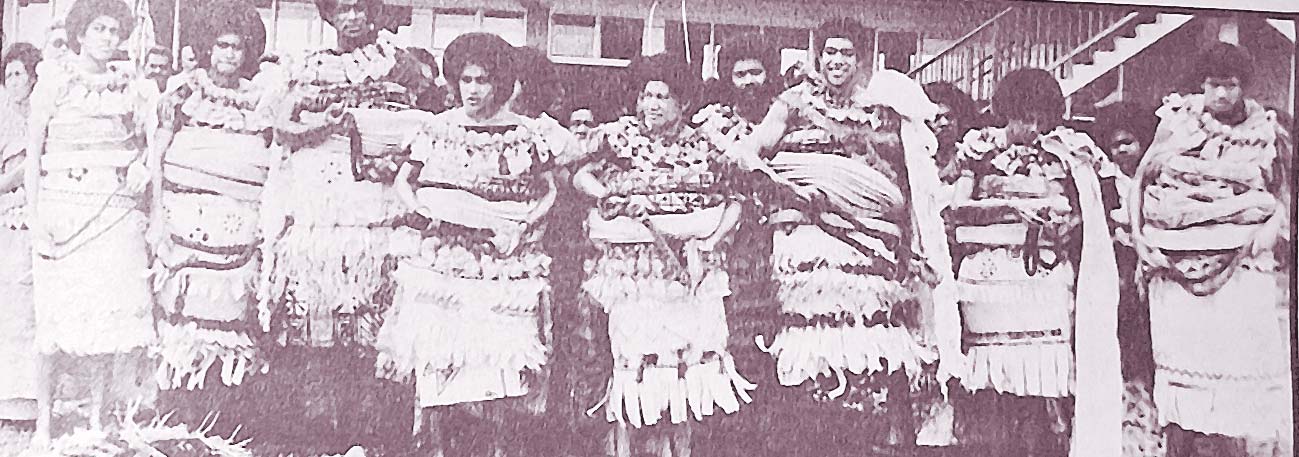In May 1980, Naililili in Rewa was busy with activities and traditional observances.
The ground was stacked with dalo, tabua, tanoa, masi and all sorts of food to honour the eight children of the Prime Minister, Ratu Sir Kamisese Mara and Adi Lady Lala Mara.
The event was reported in The Fiji Times on May 11, 1980. The children were setting foot on their mother’s village for the first time and therefore had to take part in the indigenous Fijian ceremony called kau ni mata ni gone (showing the children’s faces).
It began with the arrival of Ratu Sir Kamisese and his children – Adi Elenoa, Adi Litia, Ratu Joji, Adi Koila, Adi Ateca, Ratu Finau, Adi Kakua and Roko Uluilakeba — aboard the barge Duiyabaki from Suva at about 9am.
The party was met by Rewa chief Ratu Yaca Silatolu, and escorted by armed Fijian warriors to a shelter where their mother was waiting. The village rara held about 8000 people from the provinces of Rewa and Lau and all the gifts they had prepared.
A tower of dalo from Rewa topped coconut palms. As the children arrived, it collapsed, showering the ground with hundreds of dalo, but injuring nobody.
The Rewans also had for presentation six horses, two punts, a number of huge roast pigs, and bolts of cotton cloth streaming amongst the crowds and surrounding the Prime Minister’s party.
Hundreds of Lauans, already in the village awaiting the ceremonies, displayed their gifts, which included three takia, about 50 tanoa, several large lali drums, drums of kerosene, dozens of mats and many pieces of special Lauan masi named kumi, tibs and pounding clubs for making vakalolo, hundreds of bottles of oil and many metres of cloth.
There was also food for the feasting after the ceremonies and dancing.
Delicacies included turtle, pork, chicken, and non-traditional items such as curry, chop-suey and stew, ice-cream and fruit salad.
During the morning’s ceremonies, the PM’s children were dressed in masi and mats by the Lauan people, formally presented to the people of Rewa and their leaders, and handed over armfuls of tabua and the other gifts from the people of Lau.
After the ceremony, men and women from Rewa and Lau performed traditional meke, sang, made music and later feasted on the mountains of food prepared for the party.



